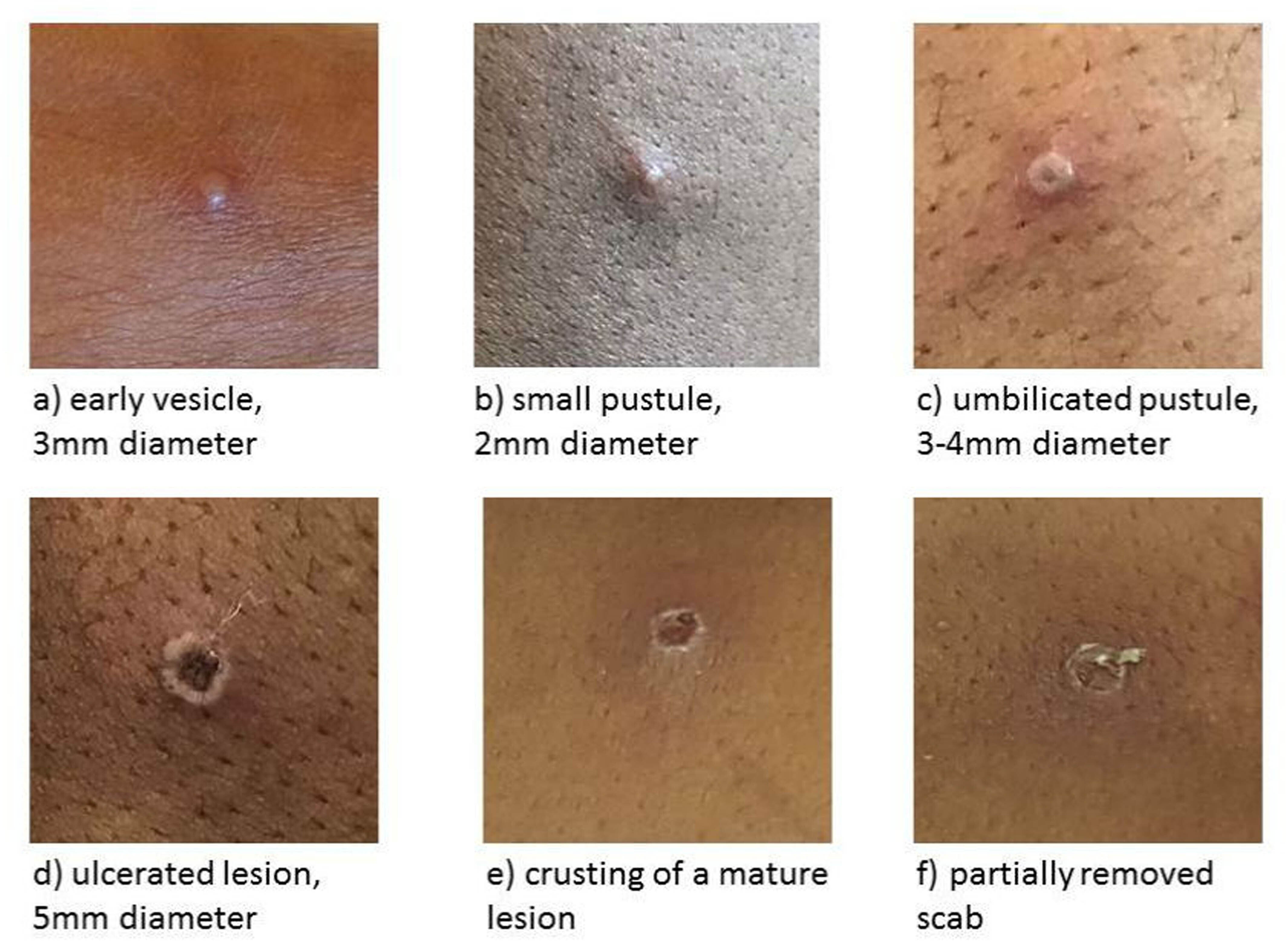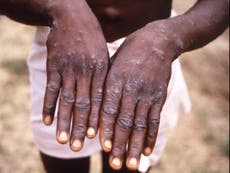Monkeypox: UK health officials identify new symptoms
‘It is important to recognise that just one or two genital or anal lesions, or lesions in the mouth, can be signs of monkeypox, especially if you have had a new sexual partner,’ says UK Health Security Agency
Your support helps us to tell the story
From reproductive rights to climate change to Big Tech, The Independent is on the ground when the story is developing. Whether it's investigating the financials of Elon Musk's pro-Trump PAC or producing our latest documentary, 'The A Word', which shines a light on the American women fighting for reproductive rights, we know how important it is to parse out the facts from the messaging.
At such a critical moment in US history, we need reporters on the ground. Your donation allows us to keep sending journalists to speak to both sides of the story.
The Independent is trusted by Americans across the entire political spectrum. And unlike many other quality news outlets, we choose not to lock Americans out of our reporting and analysis with paywalls. We believe quality journalism should be available to everyone, paid for by those who can afford it.
Your support makes all the difference.Health officials in the UK have updated the case definition of monkeypox to include new symptoms associated with the disease.
A single lesion or lesions on the genitals, anus and surrounding area, lesions in the mouth, and anal pain or bleeding, especially if the individual has had a new sexual partner recently, have all been identified as symptoms of the viral infection by the UK Health Security Agency (UKHSA).
The majority of people with monkeypox can safely manage their symptoms at home and there have been no reported deaths.
Most people experience mild symptoms but it can cause a significant illness in some, requiring hospitalisation, including for severe pain, UKHSA added.
Meera Chand, director of clinical and emerging infections at UKHSA, said: “We continue to see new diagnoses of monkeypox, passed on primarily through close or sexual contact.
“We have updated our case definitions to reflect the clinical presentations that have been seen during this outbreak. It is important to recognise that just one or two genital or anal lesions, or lesions in the mouth, can be signs of monkeypox, especially if you have had a new sexual partner. If you think you have monkeypox, stay at home and contact 111 or your local sexual health service for advice.
“There is still a need to be cautious and stay alert for symptoms. For many people symptoms can be mild but for some people, hospital treatment may be required.”

Commenting on the case definition update, Professor Jonathan Ball, a virologist at the University of Nottingham, said: “The majority of monkeypox cases outside of Central and Western Africa are in gay, bisexual and other men having sex with men and the symptoms experienced in this group can be different to symptoms seen in other outbreaks.
“Therefore extending the list of potential symptoms to reflect this will ensure that as many cases as possible can be identified and isolated, and their contacts traced to help bring the current outbreak to an end.”
The new advice comes after the World Health Organisation announced that the rapidly spreading monkeypox outbreak represents a global health emergency.
The WHO label – a “public health emergency of international concern (PHEIC)” – is designed to trigger a coordinated international response and could unlock funding to collaborate on sharing vaccines and treatments.
In the UK, there were 2,208 confirmed cases in the UK as of 21 July, according to data from UKHSA. Of these, 2,115 are in England.
In the latest technical briefing from UKHSA, the evidence suggests that “transmission continues to occur primarily within interconnected sexual networks”.
The agency added: “Currently we are not seeing significant levels of transmission outside of these networks, but we continue to monitor for changes.”



Join our commenting forum
Join thought-provoking conversations, follow other Independent readers and see their replies
Comments